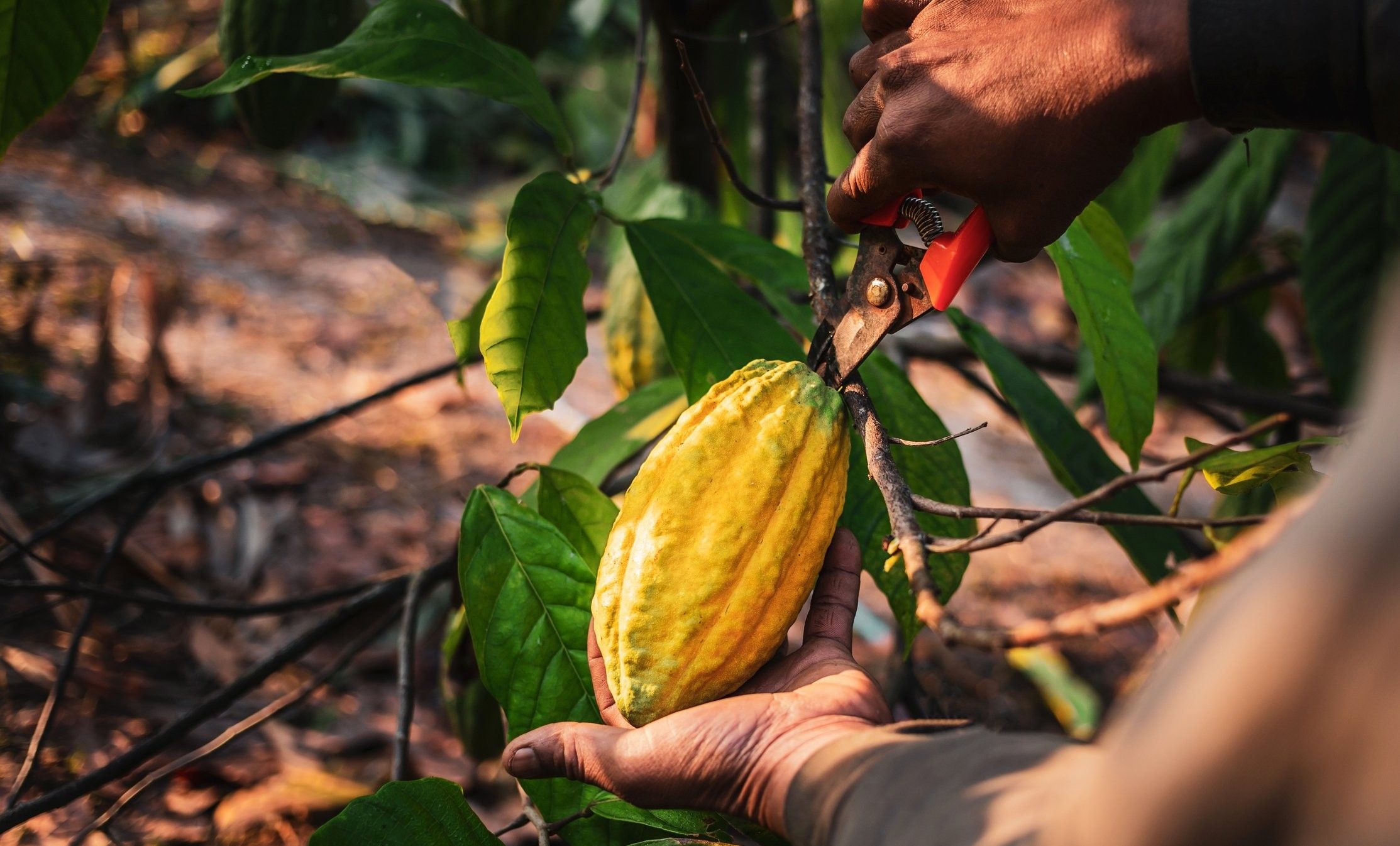This Easter, you might be surprised by the price hike on your favourite chocolate eggs. There’s a culprit behind this sugary situation: climate change.
The majority of cocoa, the key ingredient in chocolate, comes from West Africa. Unfortunately, this region has been ravaged by a brutal heatwave, significantly reducing cocoa crop yields. Experts point the finger at human-induced climate change, which has made such extreme heat events ten times more likely.
The consumer group reported price increases of over 50 per cent on popular Easter eggs. The cocoa shortage has driven prices skyrocketing, reaching nearly £ 6,710 per tonne this week.
The cocoa trees are particularly sensitive to climate fluctuations. They thrive in a narrow band around the equator, with most global production concentrated in West Africa. In 2023, the UK imported a significant portion of its cocoa beans (85 per cent) from Ivory Coast and Ghana.
A severe drought has gripped West Africa since February. The record-breaking temperatures exceeding 40°C have scorched crops in countries like Ivory Coast and Ghana.
The World Weather Attribution group, based at Imperial College London, analysed this extreme weather event and found that human-caused greenhouse gas emissions made such high temperatures ten times more likely.

Their study warns of a bleak future for West African cocoa production – similar heatwaves could become a regular occurrence (every two years) unless the world drastically reduces its reliance on fossil fuels.
“There were reports from farmers in Ivory Coast that the heat weakened the cocoa crop,” according to one of the authors of the study, Izadine Pinto, from the University of Cape Town.
Another factor impacting the crops is El Niño, a natural fluctuation in Pacific Ocean temperatures that influences global weather patterns. The current strong El Niño event, active since last June, has contributed to extreme weather conditions in some areas.
“Increasingly, climate change driven by fossil fuel use is multiplying this natural challenge in many regions. It fuels more extreme conditions, devastates harvests, and makes food costs higher for all,” says Ben Clarke, an expert on extreme weather at Imperial College’s Grantham Institute.
But drought isn’t the only threat facing cocoa growers. In a double whammy of extreme weather, both Ivory Coast and Ghana experienced intense rainfall in December 2023. This excessive moisture created ideal conditions for a fungal disease called black pod, which caused widespread rotting of cocoa beans on the trees.
The combined impact of these extreme weather events has been a significant rise in cocoa prices – more than tripling compared to last year and doubling in just the last three months.
Mondelez, the company behind Cadbury, and Hershey’s, another American chocolate giant, warned of potential price hikes back in February due to rising cocoa costs.
Unfortunately, the brunt of these price fluctuations is felt by the cocoa farmers themselves. West Africa’s cocoa belt is home to an estimated two million smallholder farmers who rely on this labour-intensive crop for their livelihood.
Amber Sawyer, an analyst at the Energy and Climate Intelligence Unit, a climate think-tank, emphasizes the need for assistance. Developed nations like the UK can provide financial and technical support to help West African farmers adapt to extreme weather events. However, she warns that “as climate change worsens, more support will be undoubtedly needed to protect their livelihoods and ensure a steady flow of cocoa beans.”
So, this Easter, while indulging in your chocolate treats, remember the hidden cost – a changing climate impacting not just the price, but the very future of cocoa production.
(With inputs from BBC)
